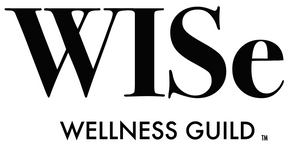
8 Evidenced-Based Strategies for Reducing Stress
Stress is a feeling of emotional or physical tension – it is your body's reaction to a challenge or demand. From a mental health perspective, the cycle appears in this form:
We face very real, “threats,” aka stressors, each day (career pressure, deadlines, parenting, caregiving, illness, lack of sleep, discrimination, etc.), as well as, “perceived threats” (arguments, negative feedback, negative self-talk, running late, lack of cooperation, etc.) that can be exacerbated by chronic stress such as trauma.
Whether your stressor is internal (negative self-talk) or external (extended work project), we begin a negative cycle of thoughts, feelings, & behaviors. Our mind's think: “This is a threat!” Our body reacts by releasing cortisol, sweating, jumping into fight or flight mode, and our behaviors become less effective (such as, unhealthy coping like smoking or using substances, becoming irritable, starting arguments, difficulty completing tasks, etc.)
Here is where we get stuck in the stress cycle, which can have a larger impact on our mental & physical health, leading to anxiety, depression, other health issues.
So what are some practical strategies for reducing stress & closing the stress cycle? Here are 8 evidence-backed strategies for reducing stress:
- Change the situation to avoid the stressor. What stressors can you eliminate? (ie, if driving in traffic gives you stress can you take public transportation?)
- Change the way we view the situation. Is there a way to reframe? If we have no other option but to drive to work, can we use that time to our advantage instead of dwelling on how slowly the traffic is moving? (ie, A podcast that inspires you; catching up with a good friend, practicing deep breathing.) Some stress might be inevitable. But its negative effects on the brain and body do not have to be inevitable. By altering the way we interpret the world around us, we can gain control over stress. By changing our perception about a situation, we can even gain the power to see its benefits.
- Set healthy boundaries by consciously choosing who you spend time with. Anxiety is contagious, and so is calm – what energy do you surround yourself with, and what energy do you share with others? Stay connected to those who are good for you. MAKE EFFORT to maintain positive support.
- Any type of movement. Research shows that 20 minutes of cardiovascular exercise per day will actually get rid of cortisol in the brain. Shoot for 4 days per week for 20 minutes for 6 weeks. This practice literally changes cortisol levels in hippocampus.
- Sleep. Aim for 7-8 hours a night.
- Practice self efficacy to boost confidence and competency. This allows the brain to process information more accurately and efficiently. This can be done by “checking the facts” of a situation, focusing on what you DO know how to do, not what’s outside of your control. Additionally, advocating for yourself, asking for help, and having someone you trust give you input on your work are all great ways to increase self worth and decrease stress.
- Find meaning & purpose in difficult situations. Understanding personal motivations within a larger context of meaning and purpose anchors the brain during a traumatic event. This is very individual. Some may find meaning or purpose in religion or spirituality, while others find it in art, friendship, nature, knowledge, or special hobbies. Ask yourself: “How can I make meaning of difficult situations? How does this fit in my life? What is the deep meaning, the bigger picture? What lesson can I learn from this that will benefit me in the future? How can I find justice? Process it with a trusted friend.
- Relax. Take a bath. Call a friend. Watch a movie. Read a book. Do what rejuvenates you. You deserve it.
Reference: Stress Support Presentation given in June 2021 by Meagan Connley, MBA, and Maggie Wilhelm, LPCC
Check out more of Maggie Wilhelm's articles here.
Invest in yourself for no investment at all! Subscribe to receive weekly wellness tips, resources, products & upcoming events.
Join us on Instagram at @wise_wellness_guild for daily inspiration, community spotlights and wellness resources.

Leave a comment